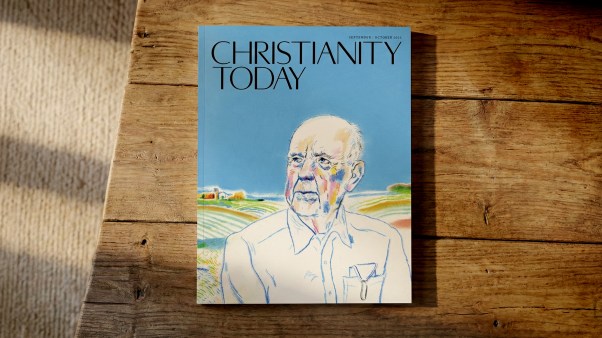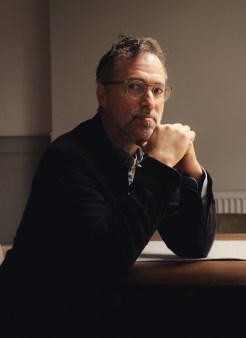Mission to Milosevic
One pastor’s part in freeing the captives in Yugoslavia.
When James T. Meeks boarded a plane for Yugoslavia last April, he knew the journey would be risky. With NATO bombs falling over Belgrade and an unpredictable war criminal running the nation, it was not the ideal time to visit the Balkans.
Meeks, pastor of Salem Baptist Church on Chicago’s South Side, was accompanying civil-rights activist Jesse Jackson on his controversial trip during the Kosovo crisis.
Jackson’s delegation—comprised of clergy from Protestant, Roman Catholic, Orthodox, Jewish, and Muslim traditions—had received a formal invitation to visit church leaders in Yugoslavia, but they also had a more urgent motive: persuading Yugoslav president Slobodan Milosevic to release Steven Gonzales, Andrew Ramirez, and Christopher Stone, the three American soldiers captured by Serb forces on March 31.
“Before we went, we wanted a guarantee that we’d be able to meet Milosevic, and that we could see and talk to the hostages,” says Meeks. “Once we had that, we knew that we would be successful, that God would open the right doors.”
The delegation went despite appeals from the U.S. National Security Council to cancel the trip, warning them that NATO air strikes would not cease just because they were in Belgrade, and the U.S. could not guarantee their safety.
“We knew it would be dangerous,” Meeks says, “but we also knew it was a mission of faith.”
In Belgrade, the night skies buzzed with NATO planes attacking targets below in an effort to stop Milosevic’s campaign against the Muslim Kosovars. From the hotel, Meeks could hear the bombs. “They were very real, and very close,” he recalls.
But the hazards of the mission were forgotten when the U.S. delegation met the three hostages and delivered Bibles, candy, and a tape recorder to play messages from the soldiers’ families.
Video footage showing the smiling soldiers with the delegation was broadcast to the U.S. The joy on their faces was genuine, says Meeks, who prayed with the men. “We prayed for their peace and strength, and that God would deliver them very soon.”
Meeks was not among the five delegates who finally met with Milosevic behind closed doors, but he says God went before the group to soften the Yugoslav leader’s heart. He later agreed to free the soldiers.
“We rejoiced,” Meeks says. “But we knew, even before we left the United States, that God would give us the victory.”
Despite the delegation’s religious diversity, the group came together as a team, says Meeks. “When we prayed, we all prayed the way we usually would. We didn’t compromise who we were individually, but we were all committed to the common goal of winning the freedom of those young soldiers.”
The Greater Commission
This was not the first time Meeks used his influence as a Christian leader to promote change in political circles. Last year, the 42-year-old preacher mobilized his church’s 10,000 members to rid their inner-city neighborhood of liquor stores and pave the way for brighter, more family-friendly establishments, like supermarkets and movie theaters. As a result, residents of the community voted to shut down 30 liquor shops. According to the Chicago Tribune, it was “the largest anti-alcohol victory in city history.”
Meeks hopes other pastors will recognize their opportunities to transform society.
“I see social involvement as part of the Great Commission, to ‘go into the world’ and disciple,” he says. “The faith community often will be able to accomplish that which governments cannot. The church needs to see its role as more than simply evangelizing. We must be ministers of the gospel both in our words and action, in the church and outside the church.”
Copyright © 1999 by the author or Christianity Today/Leadership Journal. Click here for reprint information on Leadership Journal.









